
The Majestic Al Shouf Cedar Nature Reserve
Nestled in the heart of Lebanon, the Al Shouf Cedar Nature Reserve is a haven for nature lovers and history enthusiasts alike. The reserve is home to the ancient cedar trees, some of which are over 2,000 years old. These trees have stood the test of time and are a living testament to Lebanon’s rich natural heritage. The reserve spans across an area of approximately 550 square kilometers, making it the largest nature reserve in Lebanon. Visitors can explore a variety of landscapes, from lush forests to rugged mountains. The reserve is also a sanctuary for wildlife, including wolves, hyenas, and the endangered Nubian ibex. Bird watchers will be delighted with the diverse array of bird species that call this place home. Apart from its natural beauty, Al Shouf Cedar Nature Reserve offers a glimpse into Lebanon’s cultural past. Scattered throughout the reserve are ancient monasteries, traditional Lebanese villages, and archaeological sites. Hiking trails of varying difficulty levels provide ample opportunity for adventure, while guided tours offer educational insights into the region’s flora, fauna, and history.
Local tips in Al Shouf Cedar Nature
- Visit during spring or autumn for the best weather and fewer crowds.
- Wear sturdy hiking boots as some trails can be rugged and steep.
- Bring binoculars for bird watching and spotting wildlife.
- Hire a local guide to learn more about the history and ecology of the area.
- Pack a picnic and enjoy it at one of the designated scenic spots in the reserve.
The Majestic Al Shouf Cedar Nature Reserve
Nestled in the heart of Lebanon, the Al Shouf Cedar Nature Reserve is a haven for nature lovers and history enthusiasts alike. The reserve is home to the ancient cedar trees, some of which are over 2,000 years old. These trees have stood the test of time and are a living testament to Lebanon’s rich natural heritage. The reserve spans across an area of approximately 550 square kilometers, making it the largest nature reserve in Lebanon. Visitors can explore a variety of landscapes, from lush forests to rugged mountains. The reserve is also a sanctuary for wildlife, including wolves, hyenas, and the endangered Nubian ibex. Bird watchers will be delighted with the diverse array of bird species that call this place home. Apart from its natural beauty, Al Shouf Cedar Nature Reserve offers a glimpse into Lebanon’s cultural past. Scattered throughout the reserve are ancient monasteries, traditional Lebanese villages, and archaeological sites. Hiking trails of varying difficulty levels provide ample opportunity for adventure, while guided tours offer educational insights into the region’s flora, fauna, and history.
When is the best time to go to Al Shouf Cedar Nature?
Iconic landmarks you can’t miss
Shouf Biosphere Reserve Barouk Cedar Forest
Explore ancient cedar forests, hike scenic trails, and discover Lebanon's natural beauty at the Shouf Biosphere Reserve's Barouk Cedar Forest.
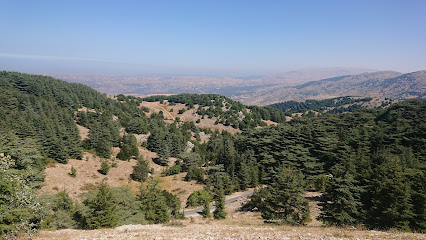
محمية ارز الشوف غابة ارز الباروك
Explore Lebanon's largest nature reserve, home to ancient cedar forests, diverse wildlife, and breathtaking mountain views.
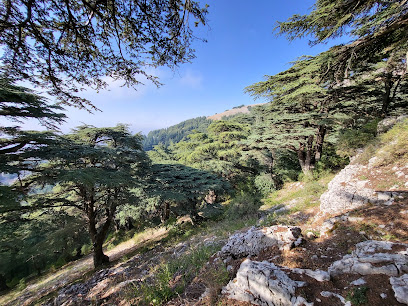
Shouf Biosphere Reserve / Maasser Cedar Forest
Discover Lebanon's natural heart: ancient cedar forests, diverse wildlife, and rich cultural heritage in the Shouf Biosphere Reserve.
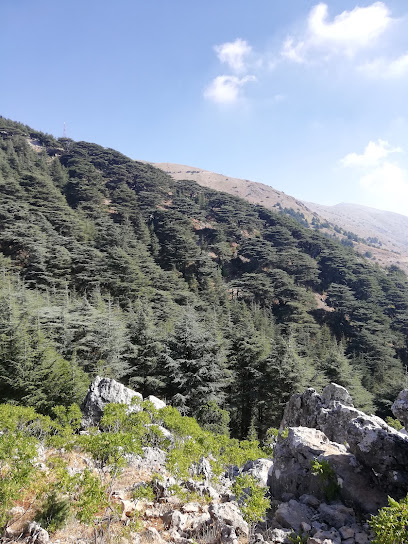
Shouf biosphere Reserve / Bmahray Ain Zhalta Forest
Discover Lebanon's natural heart: hike through ancient cedar forests, explore diverse ecosystems, and experience authentic Lebanese culture.
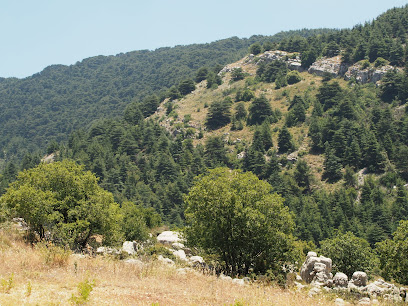
Shouf Cedars
Explore Lebanon's largest nature reserve, home to ancient cedar forests, diverse wildlife, and breathtaking mountain views.
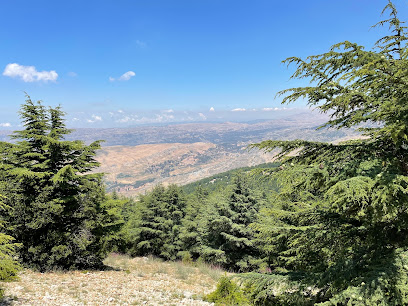
Shouf biosphere reserve/ Entrance to the Barouk Cedar forest
Discover ancient cedars, diverse wildlife, and breathtaking landscapes at the Shouf Biosphere Reserve's Barouk Cedar Forest entrance.
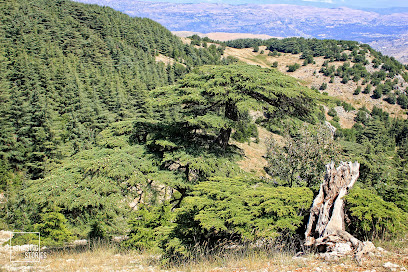
Shouf Biosphere Reserve /Niha Fortress
Discover ancient ruins and natural wonders at the Shouf Biosphere Reserve, home to the historic Niha Fortress in the heart of Lebanon.
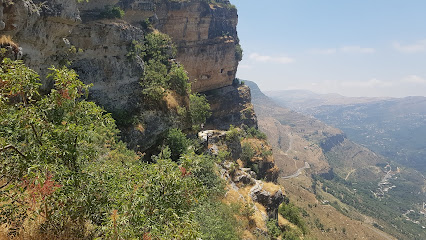
BAROUK RESERVE
Explore ancient cedar forests and diverse wildlife in Lebanon's largest nature reserve, a haven for hikers and nature lovers.
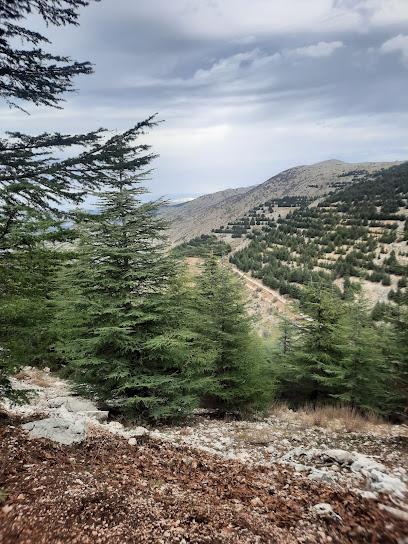
Shouf biosphere reserve-jbaa entrance
Discover the natural beauty and historical significance of Lebanon's largest nature reserve at the Jbaa entrance to the Shouf Biosphere.
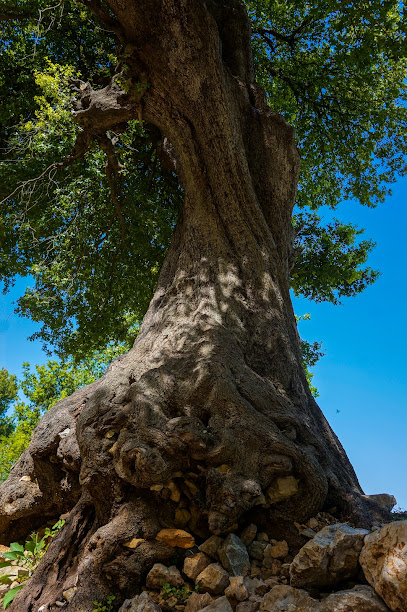
Unmissable attractions to see
Jezzine Waterfall
Experience the breathtaking beauty of Jezzine Waterfall, a natural wonder in Lebanon's stunning mountainous landscape.
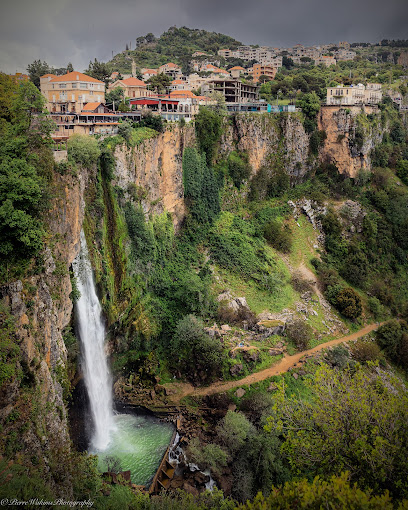
محمية ارز الشوف غابة ارز الباروك
Discover the enchanting Shouf Cedar Nature Reserve, a stunning national reserve in Lebanon, perfect for hiking, wildlife watching, and enjoying breathtaking nature.
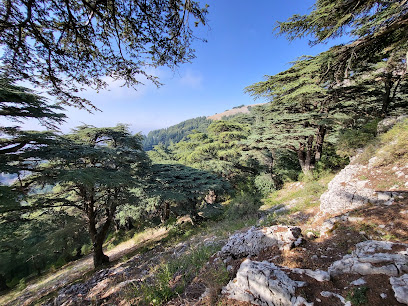
Fortress of Niha
Explore the ancient Fortress of Niha, a captivating blend of history and breathtaking views in the heart of Lebanon's mountains.
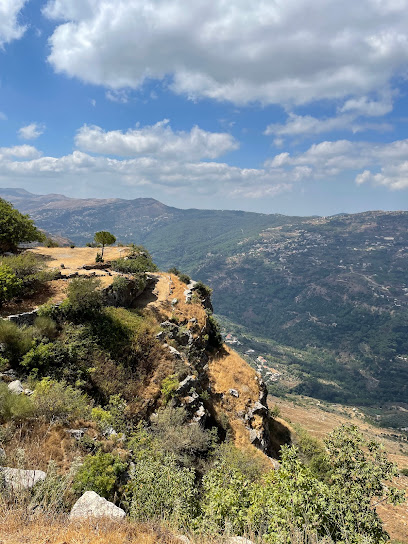
مغارة عين وزين الطبيعية
Discover the breathtaking beauty of Ain Wazein, a natural wonder in Lebanon perfect for nature lovers and adventure seekers.
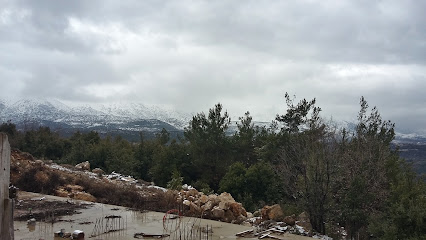
ProX Riding Club
Experience exhilarating ATV and snowmobile adventures at ProX Riding Club in Kfardebian, Lebanon's thrilling outdoor playground.
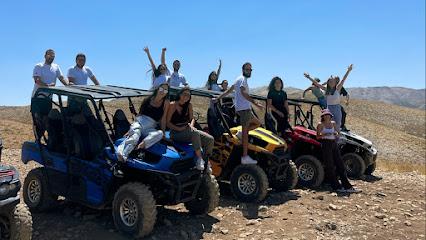
Shouf Biosphere Reserve /Niha Fortress
Discover the breathtaking Shouf Biosphere Reserve and the historic Niha Fortress, where nature and history intertwine in Lebanon's stunning landscapes.
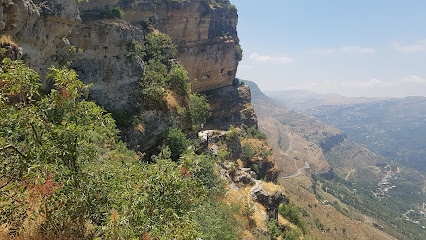
BAROUK RESERVE
Explore the largest nature reserve in Lebanon, Barouk Reserve, a haven of biodiversity and stunning landscapes perfect for adventure seekers and nature lovers.
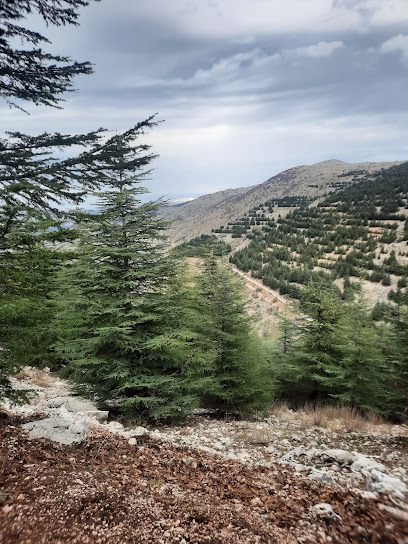
Al Hamadeh Palace
Explore the breathtaking Al Hamadeh Palace, a historical landmark in Baakleen, showcasing exquisite architecture and rich Lebanese heritage.
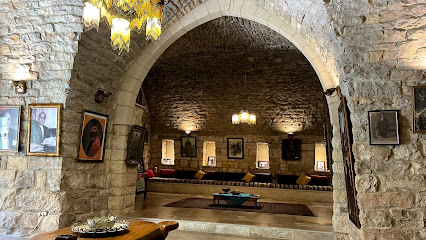
Shouf biosphere reserve-jbaa entrance
Discover the stunning Shouf Biosphere Reserve, Lebanon's ecological gem, offering breathtaking landscapes, diverse wildlife, and serene hiking trails.
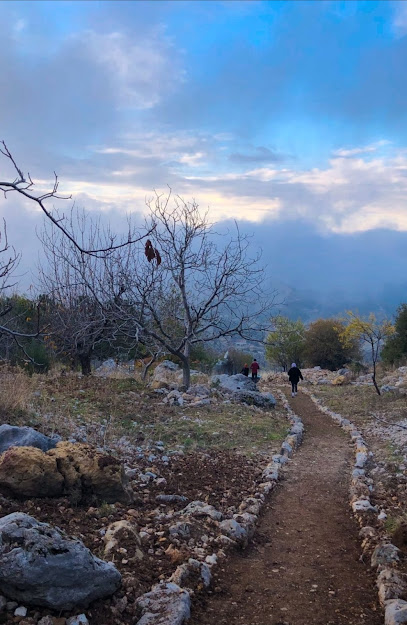
Mar Mikhael
Explore the vibrant Mar Mikhael neighborhood in Beirut, a hub of nightlife, art, and eclectic dining experiences waiting to be discovered.
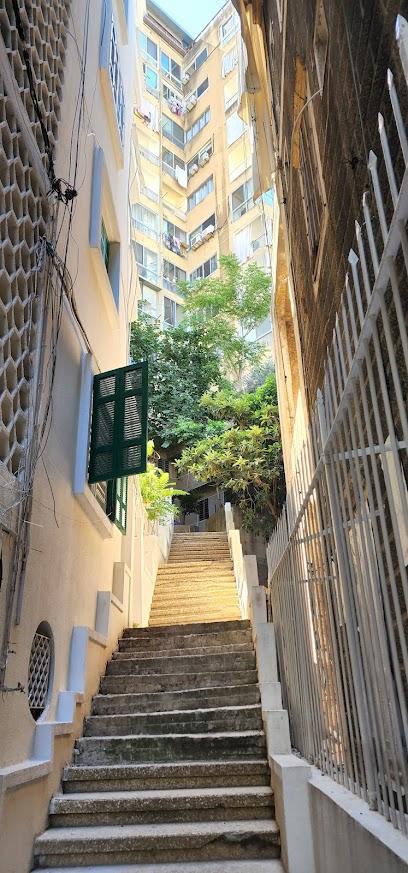
Essential places to dine
Shallalat Al Barouk Hotel & Restaurant
Experience tranquility at Shallalat Al Barouk Hotel & Restaurant amidst breathtaking cedar mountains and serene waterfalls.
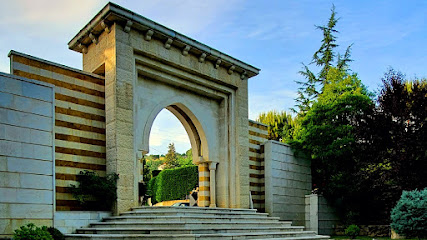
Baytna restaurant , Barouk
Savor authentic Lebanese flavors amidst stunning scenery at Baytna Restaurant in Barouk.
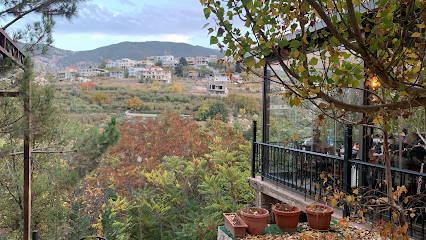
Al Midyaf restaurant
Experience the essence of Lebanese cuisine at Al Midyaf Restaurant in Barouk - where tradition meets taste!
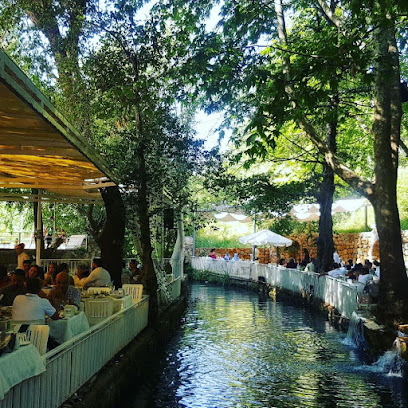
Shouf Cedars
Discover Shouf Cedars: Lebanon's breathtaking nature preserve filled with ancient trees and stunning landscapes perfect for outdoor adventures.
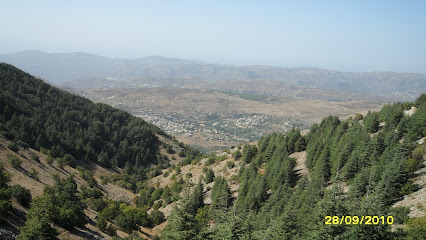
Shouf Paradise
Experience authentic Lebanese cuisine at Shouf Paradise in Samqaniyeh, where every dish tells a story and every meal becomes a cherished memory.
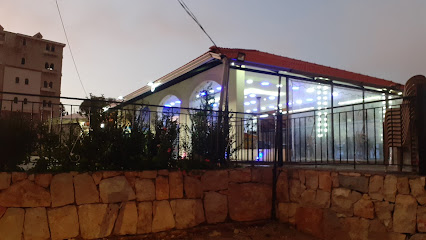
Jar Al Arez - جار الأرز
Discover authentic Lebanese flavors at Jar Al Arez while surrounded by breathtaking views in Shouf Biosphere Reserve.

Markets, malls and hidden boutiques
Shouf Biosphere Reserve Barouk Cedar Forest
Discover the stunning Shouf Biosphere Reserve Barouk Cedar Forest, a UNESCO World Heritage site teeming with ancient cedars, breathtaking landscapes, and rich biodiversity.
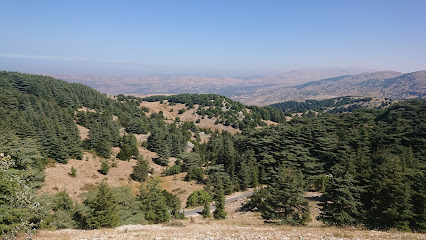
Shouf Biosphere Reserve / Maasser Cedar Forest
Discover the Shouf Biosphere Reserve, a stunning natural sanctuary in Lebanon, renowned for its ancient cedar forests and rich biodiversity.
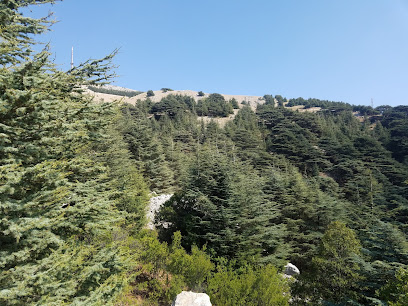
Shouf Cedars
Explore the breathtaking Shouf Cedars, a UNESCO World Heritage site known for its ancient trees, stunning views, and rich biodiversity.
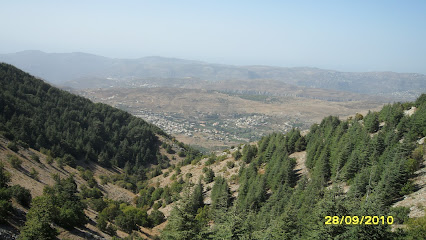
Shouf biosphere reserve/ Entrance to the Barouk Cedar forest
Discover the Shouf Biosphere Reserve: A stunning national forest in Lebanon, rich in biodiversity and home to ancient cedars, perfect for nature lovers and adventurers.
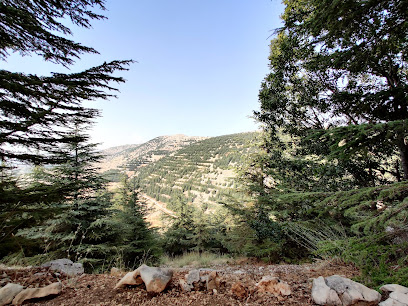
Shouf
Explore Shouf Supermarket in Boutmeh for a taste of local Lebanese culture and an array of fresh, high-quality products.

Essential bars & hidden hideouts
Shallalat Al Barouk Hotel & Restaurant
Experience serene luxury at Shallalat Al Barouk Hotel & Restaurant, where stunning cedar views and soothing waterfalls create the perfect escape in Lebanon.
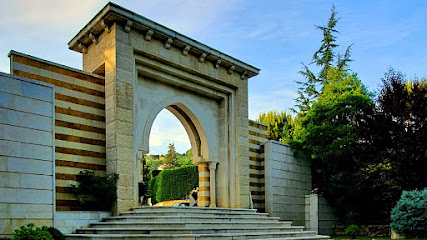
Shouf Cedars
Discover the breathtaking beauty of Shouf Cedars, a UNESCO World Heritage site showcasing ancient trees and rich biodiversity in Lebanon.
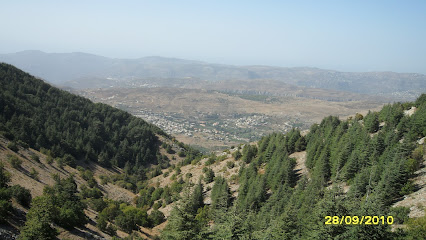
SIGHT - Deir El Qamar
Uncover the essence of nightlife at SIGHT - Deir El Qamar, where vibrant ambiance meets exquisite cuisine and endless fun.
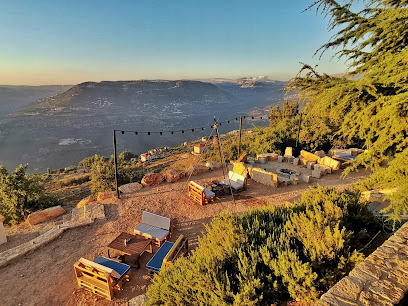
Al Kooz Cafe
Discover the enchanting Al Kooz Cafe in Barouk, where exquisite cuisine meets serene mountain views for an unforgettable dining experience.
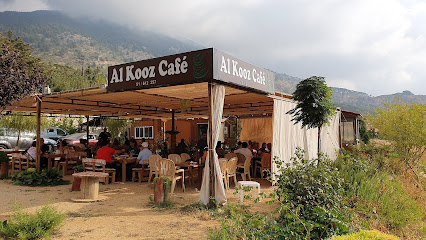
St. Michael Winery, Maasser El Chouf
Experience exquisite wines and breathtaking views at St. Michael Winery in Maasser El Chouf, a must-visit destination for wine lovers.
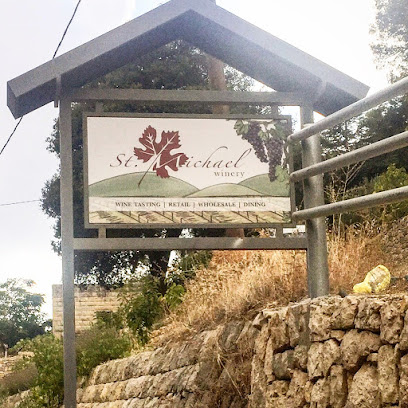
Soul - The Sunset Bar
Experience breathtaking views and vibrant nightlife at Soul - The Sunset Bar, your perfect retreat in Aatchane overlooking Beirut's stunning skyline.
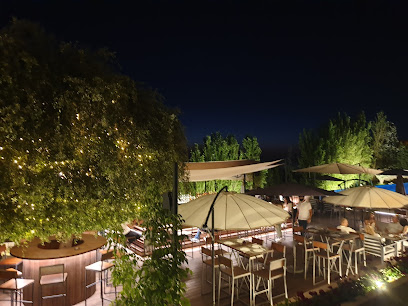
Shouf Highland
Experience the breathtaking beauty of Ain Zhalta at Shouf Highland, a serene bar and bed & breakfast nestled in the heart of nature.
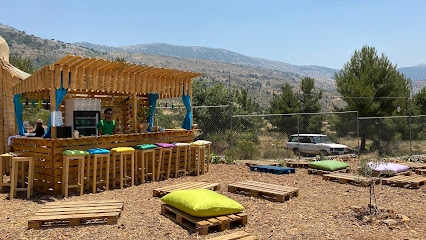
Local Phrases about Al Shouf Cedar Nature
-
- Helloمرحبا
[marhaba] - Goodbyeوداعا
[wadaan] - Yesنعم
[naam] - Noلا
[laa] - Please/You're welcomeمن فضلك
[min fadlik] - Thank youشكرا لك
[shukran lak] - Excuse me/Sorryعذرا
[aadraan] - How are you?كيف حالك؟
[kayf halak?] - Fine. And you?بخير. وأنت؟
[bikhair. wa ant?] - Do you speak English?هل تتحدث الإنجليزية؟
[hal tatahadath al-inglizia?] - I don't understandأنا لا أفهم
[ana la afham]
- Helloمرحبا
-
- I'd like to see the menu, pleaseأرغب في رؤية القائمة، من فضلك
[urghib fi ru'ya al-qaimah, min fadlik] - I don't eat meatأنا لا آكل اللحم
[ana la aakul al-lahm] - Cheers!في صحتك!
[fi sahtak!] - I would like to pay, pleaseأود الدفع، من فضلك
[awad al-daf', min fadlik]
- I'd like to see the menu, pleaseأرغب في رؤية القائمة، من فضلك
-
- Help!النجدة!
[al-najdah!] - Go away!انصرف!
[insaraf!] - Call the Police!اتصل بالشرطة!
[itasil bialshurta!] - Call a doctor!اتصل بالطبيب!
[itasil bialtabib!] - I'm lostلقد ضللت الطريق
[liqad dallat al-tariq] - I'm illأنا مريض
[ana mareed]
- Help!النجدة!
-
- I'd like to buy...أرغب بشراء...
[urghib bishira...] - I'm just lookingأنا فقط أتفرج
[ana faqat atfarij] - How much is it?بكم هذا؟
[bi kam hadha?] - That's too expensiveهذا غالي جدا
[hadha ghali jiddan] - Can you lower the price?هل يمكنك تخفيض السعر؟
[hal yumkinuk takhfeed al-sa'r?]
- I'd like to buy...أرغب بشراء...
-
- What time is it?كم الساعة؟
[kam al-sa'ah?] - It's one o'clockالساعة الواحدة
[al-sa'ah al-wahidah] - Half past (10)الساعة العاشرة والنصف
[al-sa'ah al-ashirah w al-nisf] - Morningالصباح
[al-subah] - Afternoonالظهر
[al-dhuhr] - Eveningالمساء
[al-masa'] - Yesterdayأمس
[ams] - Todayاليوم
[al-yawm] - Tomorrowغدا
[ghadan] - 1واحد
[wahid] - 2اثنان
[ithnan] - 3ثلاثة
[thalatha] - 4أربعة
[arba'ah] - 5خمسة
[khamsah] - 6ستة
[sittah] - 7سبعة
[sab'ah] - 8ثمانية
[thamania] - 9تسعة
[tis'ah] - 10عشرة
[asharah]
- What time is it?كم الساعة؟
-
- Where's a/the...?أين توجد...
[ayn tujad...] - What's the address?ما هو العنوان؟
[ma hu al-unnwan?] - Can you show me (on the map)?هل يمكنك عرضه لي (على الخريطة)؟
[hal yumkinuk uridhu li (ala al-kharitah)?] - When's the next (bus)?متى يأتي القادم (حافلة)؟
[mata yaati al-qadim (hafilah)?] - A ticket (to ....)تذكرة (إلى ...)
[tadhkirah (ila ...)]
- Where's a/the...?أين توجد...
History of Al Shouf Cedar Nature
-
The Al Shouf Cedar Nature Reserve is home to some of the oldest cedar trees in the world, with some trees dating back over 2,000 years. The cedars of Lebanon are mentioned numerous times in ancient texts, including the Bible, highlighting their historical significance. These majestic trees were prized by ancient civilizations for their high-quality timber, which was used in the construction of temples, ships, and palaces.
-
During the Phoenician era, which lasted from around 1500 BCE to 300 BCE, the cedar wood from Al Shouf was highly sought after. The Phoenicians, known for their seafaring and trade, used the durable and aromatic cedar wood to construct their famous ships. These ships enabled them to establish trade networks across the Mediterranean, spreading their influence far and wide.
-
Under Roman rule, which began in 64 BCE, the cedar forests of Al Shouf continued to be a valuable resource. The Romans utilized cedar wood in their construction projects, including the building of fortresses and public buildings. The Roman Emperor Hadrian is known to have issued decrees aimed at protecting these precious forests from over-exploitation.
-
During the Ottoman period, which began in 1516, the cedar forests suffered significant deforestation due to the high demand for timber. The Ottomans used cedar wood for various purposes, including railway construction and as fuel for steam engines. This period saw a dramatic decline in the cedar population, leading to early conservation efforts.
-
In the 20th century, recognizing the ecological and cultural importance of the cedar forests, the Lebanese government and various international organizations initiated conservation efforts. The Al Shouf Cedar Nature Reserve was officially established in 1996, aimed at protecting and preserving the remaining cedar forests. Today, the reserve is a UNESCO Biosphere Reserve and a symbol of Lebanon's natural heritage.
-
The cedars of Lebanon hold a significant place in Lebanese culture and identity. They are featured on the national flag and are a source of pride for the Lebanese people. The cedar tree symbolizes resilience, longevity, and enduring strength, qualities that are deeply ingrained in the national consciousness. The Al Shouf Cedar Nature Reserve serves as a living testament to this cultural heritage.
Al Shouf Cedar Nature Essentials
-
Al Shouf Cedar Nature Reserve is located in the Shouf region of Lebanon. The nearest international airport is Beirut-Rafic Hariri International Airport, approximately 50 kilometers away. From Beirut, you can take a taxi or a private shuttle to the Shouf region. The journey typically takes around 1 to 1.5 hours by road. Alternatively, you can rent a car from the airport for more flexibility in your travels.
-
Transportation within Al Shouf Cedar Nature Reserve and the surrounding areas is usually done by car. Renting a car is highly recommended for ease of access and flexibility. Local taxis are available but may be limited in remote areas. Public buses connect some of the nearby villages, but schedules may be infrequent. Walking is also a great way to explore the reserve, especially for short distances and nature trails.
-
The official currency in Lebanon is the Lebanese Pound (LBP), but US Dollars are widely accepted. Credit cards can be used in most hotels, restaurants, and shops, but it is advisable to carry some cash, particularly in smaller establishments and rural areas. ATMs are available in the main towns near the reserve, so you can withdraw cash as needed.
-
Al Shouf Cedar Nature Reserve is generally safe for tourists. However, standard precautions should be taken. Avoid walking alone at night in unfamiliar areas and be cautious of your belongings in crowded places. There are no specific high-crime areas targeting tourists, but it is always best to stay vigilant and aware of your surroundings.
-
In case of emergency, dial 112 for immediate assistance. The local police and medical facilities are available in nearby towns such as Barouk and Maaser El Shouf. It is recommended to have travel insurance that covers medical emergencies. For minor health issues, there are pharmacies in the nearby towns where you can purchase over-the-counter medications.
-
Fashion: Do dress modestly, especially when visiting religious sites and local villages. Avoid wearing revealing clothing. Religion: Do respect local customs and traditions. When visiting religious sites, dress appropriately and behave respectfully. Public Transport: Do be respectful and considerate of other passengers. Avoid eating or drinking on public transport. Greetings: Do greet people with a polite nod or handshake. A warm smile goes a long way. Eating & Drinking: Do try local delicacies and accept food offerings graciously. Don’t refuse hospitality, as it is considered impolite.
-
To experience Al Shouf Cedar Nature Reserve like a local, consider visiting the local markets in nearby towns such as Deir El Qamar and Beiteddine. Engage with the locals, as they are often friendly and willing to share stories about the region’s history and culture. Don’t miss the opportunity to taste the local cuisine, including dishes like kibbeh and manakish. For an authentic experience, consider staying in a guesthouse or eco-lodge within the reserve.
Trending Landmarks in Al Shouf Cedar Nature
-
Shouf Biosphere Reserve Barouk Cedar Forest
-
محمية ارز الشوف غابة ارز الباروك
-
Shouf Biosphere Reserve / Maasser Cedar Forest
-
Shouf biosphere Reserve / Bmahray Ain Zhalta Forest
-
Shouf Cedars
-
Shouf biosphere reserve/ Entrance to the Barouk Cedar forest
-
Shouf Biosphere Reserve /Niha Fortress
-
BAROUK RESERVE
-
Shouf biosphere reserve-jbaa entrance
Nearby Cities to Al Shouf Cedar Nature
-
Things To Do in Deir el Qamar
-
Things To Do in Broummana
-
Things To Do in Anjar
-
Things To Do in Zahle
-
Things To Do in Beirut
-
Things To Do in Jounieh
-
Things To Do in Rashaya
-
Things To Do in Sidon
-
Things To Do in Byblos
-
Things To Do in Marjayoun
-
Things To Do in Baalbek
-
Things To Do in Batroun
-
Things To Do in Bcharre
-
Things To Do in Tyre
-
Things To Do in Safed










